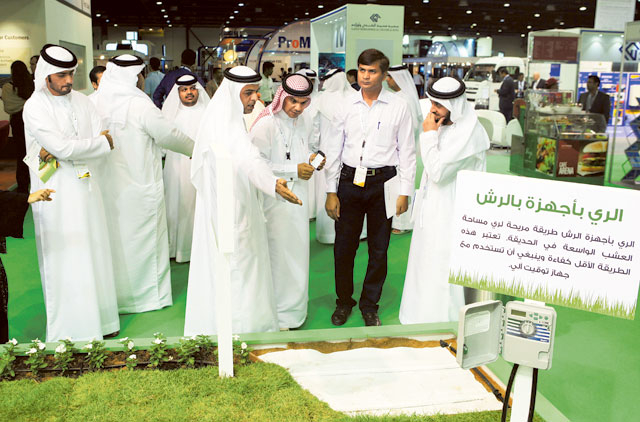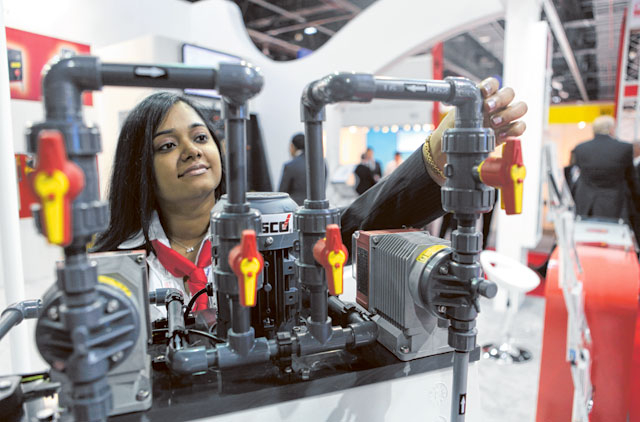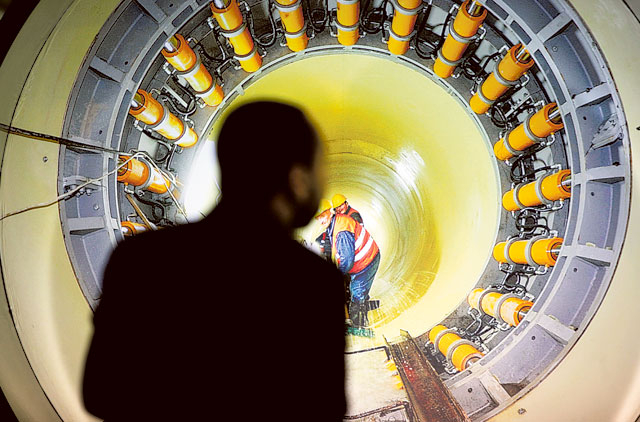
Dubai: Climate change might cause undesirable political changes, warned a former European leader at the plenary session of the Dubai Global Energy Forum on Monday.
“Climate change could become a factor behind political changes — something that might not be desirable to many of us,” John Bruton, former Irish Prime Minister told delegates, citing a recent research report by Carnegie Institution’s Department of Global Ecology that said, Genghis Khan’s Mongol invasion scrubbed nearly 700 million tonnes of carbon from the atmosphere.
Mongol invasion in the 13th and 14th centuries was so vast that it may have been the first instance in history of a single culture causing man-made climate change, the research said. “Unlike modern day climate change, the Mongol invasion cooled the planet, effectively scrubbing around 700 million tonnes of carbon from the atmosphere,” it said.
Over the course of the century and a half run of the Mongol Empire, about 22 per cent of the world’s total land area had been conquered and an estimated 40 million people were slaughtered by the horse-driven, bow-wielding hordes. Depopulation over such a large swathe of land meant that countless numbers of cultivated fields eventually returned to forests. In other words, one effect of Genghis Khan’s unrelenting invasion was widespread reforestation, and the re-growth of those forests meant that more carbon could be absorbed from the atmosphere.
“It’s a common misconception that the human impact on climate began with the large-scale burning of coal and oil in the industrial era,” Julia Pongratz, who headed the Carnegie Institution research project, has been quoted in a recent report published by Mother Nature Network. “Actually, humans started to influence the environment thousands of years ago by changing the vegetation cover of the Earth’s landscapes when we cleared forests for agriculture.”
The 700 million tons of carbon absorbed as a result of the Mongol invasions roughly equals the amount of carbon global society now produces annually from gasoline.
“Though Genghis Khan’s legacy as one of the world’s cruellest conquerors isn’t likely to change because of the unintended “green” consequences of his invasions, Pongratz hopes that her research can lead to land-use changes that someday might alter how future historians rate our environmental impact,” the report says.
Worldwide renewable electricity generation since 1990 grew an average of 2.8 per cent per year, which is less than the 3 per cent growth seen for total electricity generation, according to the International Energy Agency (IEA).
“While 19.5 per cent of global electricity in 1990 was produced from renewable sources, this share fell to 19.3 per cent in 2009,” IEA said in a report. “This decrease is mainly the result of slow growth of the main renewable source, hydroelectric power, in OECD countries. Achieving the goal of halving global energy‐related CO2 emissions by 2050 will require a doubling (from today’s levels) of renewable generation by 2020.”
Referring to climate change, as a major challenge faced by the mankind, the former Irish leader said, Europe is facing the worst of challenges. European welfare states are facing revenue pressures in power production due to the fact that other countries now also produce what we produce and with the same efficiency level, he said.
“We know that the production of power from renewable energy does not compete with those produced from fossil fuels, this therefore needs a major commitment by the governments and policy-makers to spearhead the development of renewable energy,” he said. “However, in some cases, renewable energy is becoming more competitive with fossil fuels.”
Energy providers will play a pivotal role over the coming decades in managing energy demand growth and reducing greenhouse gas (GHG) emissions, said a latest report by the International Energy Agency. The IEA projects that the power sector will deliver up to two‐thirds of cumulative emissions reductions under the climate‐stabilising 450 ppm scenario, by switching to less carbon‐intensive generation, improving operational efficiency, and reducing demand. Reducing electricity end‐use demand by itself is expected to account for one-third of the GHG emissions reductions through 2025.
The IEA has estimated that in 2011 energy providers spent almost $12 billion on energy saving activities. Most of this spending is from state and provincial efforts in North America, where some energy providers spend as much as 3 per cent of their revenue on energy efficiency. In the UK, annual spending by energy retailers under the Carbon Emissions Reduction Target (CERT) supplier obligation has been $1.6 billion per year, while the Italian White Certificates scheme accounted for over $260 million annually in 2010 and 2011. Australian energy providers delivered another $100 million in spending, while Brazilian energy providers spend about $250 million each year.
In this regard, Bruton commended the UAE’s move towards a sustainable development roadmap and its plan for diverse energy mix. “I commend the leadership and the people of the UAE and Dubai for promoting sustainability and taking a leadership role in implementing renewable energy projects in this region,” he said.














